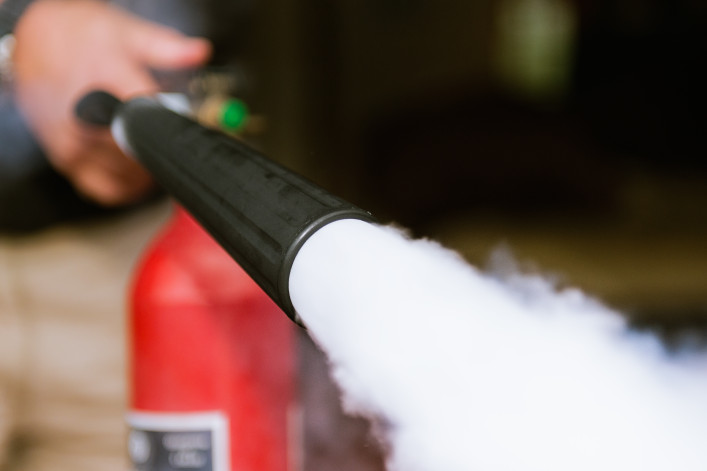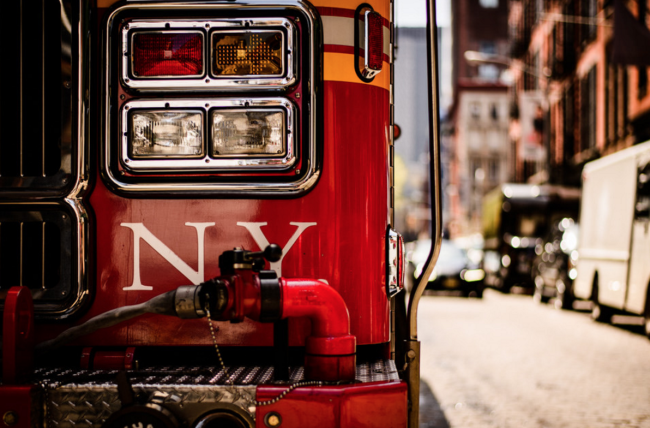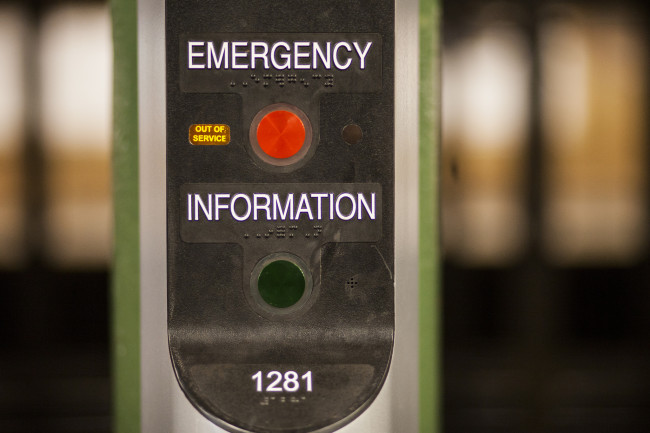Mysterious fires in a Williamsburg building: How do you protect yourself?

A rash of fires in a luxury building in Williamsburg is frightening residents, Gothamist reports. The property, the Austin Nichols House, is a renovated century-old warehouse that houses 338 luxury rentals, which are rent-stabilized until 2025 thanks to a tax abatement. Last year, real estate mogul (and Trump son-in-law) Jared Kushner purchased the property and intends to convert the units to condos.
Since then, residents have complained of significant rent hikes, as well as noise and dust from construction. And since May, tenants say a more urgent matter has come up: a series of five fires in several apartments and common areas in one section of the building. Lawyers representing the building's management company sent letters to tenants saying that one resident is to blame for the blazes.
At a meeting last week, as Gothamist details, management told residents that the alleged arsonist had been identified and given the boot. When contacted for comment, though, FDNY spokesperson Frank Dwyer said that the fires remain under investigation: "No determination has been made regarding the causes of these fires and they have not been labeled arson by the Department." Note that witnesses who have any information about the fires are encouraged to call 718-722-3600.
A neighbor who starts fires in your building, whether intentionally or accidentally, is a terrifying prospect—and certainly not without precedent in NYC. Students from CUNY's Graduate School of Journalism have documented the history of arson in New York on their site, Chasing Fires, which reveals some startling stats. In 1776, for instance, the Great Fire of New York consumed a third of the city; while no culprits were ever identified, many suspected that the conflagration was deliberately set. Centuries later, "The Bronx is Burning" was an unfortunately apt phrase for the borough during the 1970s, when an astonishing 97 percent of its buildings were abandoned or burned down.
More recently, a community of Bukharian Jews in Forest Hills was beset by fires last year when flames broke out on four construction sites, according to the New York Times. Locals suspected a single arsonist was behind the incidents, and may have been driven by anti-Semitism and resentment of the development of large, luxurious homes in the area.
But most New Yorkers live in close quarters rather than sprawling houses, and the idea of sharing a building with a pyromaniac is certainly alarming. So what can you do to protect yourself and your belongings if you find yourself in such a situation? How do you protect yourself, in general, if neighbors are careless?
Dwyer says that your first step should be to call 911; you should also contact your building's management company to let them know about your suspicions. It's also a good idea to speak with building staff: If you have a doorman or live-in super, they will be at least acquainted with all the residents and aware of their comings and goings, which means they're likely to be more attuned to suspicious behavior.
And while the FDNY conducts an investigation, you can take steps to protect yourself with its guides to fire safety. While many specifically address how to prevent fires in your own home, its tips on safely escaping a fire include helpful information for those concerned about flames breaking out in other parts of their building. In addition to keeping smoke detectors charged and having fire extinguishers on hand, making an escape plan—and even conducting your own fire drill—seems like a useful practice for all New Yorkers. Ensuring that your fire escape is up to code and clear of obstructions, for instance, is crucial; check out our guide to fire escape safety here.
You'll also want to protect your possessions, which is where apartment insurance comes in. Jeffrey Schneider, president of Gotham Brokerage (FYI, a Brick sponsor), says that any type of renter's or owner's policy will cover damages from fires—as long as you're not the one setting them. You also need not worry about your rates being affected by the presence of a neighbor starting fires: "There would be no change to rates as a result of this," Schneider says. "A rate change would have to be filed and approved by New York state, and it's unlikely they would allow it in this situation."
It's also a good idea to take steps to catalogue your belongings before a worst case scenario unfolds. "Document your property in case you need to make a claim," Schneider advises. "The best thing is to have receipts or year-end credit card statements showing your purchases, or take photos of your belongings and store them in your email account." This way, should anything be destroyed, you can easily account for the value of what was lost.
And your own well-being should be your top priority. "Make sure your smoke detectors are working," Schneider says, and if they go off, leave immediately. "It's most important to get yourself to safety."
You Might Also Like



























